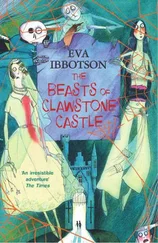Ibbotson, Eva - Magic Flutes
Здесь есть возможность читать онлайн «Ibbotson, Eva - Magic Flutes» весь текст электронной книги совершенно бесплатно (целиком полную версию без сокращений). В некоторых случаях можно слушать аудио, скачать через торрент в формате fb2 и присутствует краткое содержание. Год выпуска: 2011, Издательство: Macmillan Publishers UK, Жанр: Старинная литература, на английском языке. Описание произведения, (предисловие) а так же отзывы посетителей доступны на портале библиотеки ЛибКат.
- Название:Magic Flutes
- Автор:
- Издательство:Macmillan Publishers UK
- Жанр:
- Год:2011
- ISBN:нет данных
- Рейтинг книги:3 / 5. Голосов: 1
-
Избранное:Добавить в избранное
- Отзывы:
-
Ваша оценка:
- 60
- 1
- 2
- 3
- 4
- 5
Magic Flutes: краткое содержание, описание и аннотация
Предлагаем к чтению аннотацию, описание, краткое содержание или предисловие (зависит от того, что написал сам автор книги «Magic Flutes»). Если вы не нашли необходимую информацию о книге — напишите в комментариях, мы постараемся отыскать её.
Magic Flutes — читать онлайн бесплатно полную книгу (весь текст) целиком
Ниже представлен текст книги, разбитый по страницам. Система сохранения места последней прочитанной страницы, позволяет с удобством читать онлайн бесплатно книгу «Magic Flutes», без необходимости каждый раз заново искать на чём Вы остановились. Поставьте закладку, и сможете в любой момент перейти на страницу, на которой закончили чтение.
Интервал:
Закладка:

To Aaron and Johanna
‘What do they celebrate, the magic flutes of love? Why, tears and laughter’
After Praxilla (fourth century BC)
Contents
Prologue
Chapter 1
Chapter 2
Chapter 3
Chapter 4
Chapter 5
Chapter 6
Chapter 7
Chapter 8
Chapter 9
Chapter 10
Chapter 11
Chapter 12
Chapter 13
Chapter 14
Chapter 15
Chapter 16
Chapter 17
Chapter 18
Chapter 19
Prologue
(Birth of a Hero)
They were both born under the sign of Gemini, and for those who believe in the stars as arbiters of fate this must have seemed the link that bound them. She herself was to invoke the heavens when at last they met. ‘Could I be your Star Sister?’ she was to ask him, ‘Could I at least be that?’
Certainly it would seem to need the magic of star lore to link the life of the tiny, dark-eyed Austrian princess – born in a famous castle and burdened, in the presence of the Emperor Franz Joseph, with a dozen sonorous Christian names – with that of the abandoned, grey-blanketed bundle found on the quayside of a grim, industrial English town: a bundle opened to reveal a day-old, naked, furiously screaming baby boy.
Her birth thus was chronicled, documented and celebrated with fanfares (though she should have been a boy). But his . . .
It was the merest chance that he was found at all, for the bundle was half concealed by sacking and the Tyne docks that mid-morning in 1891 were high-piled with packing cases waiting to be loaded on the boats for Scandinavia, with rusty barrels, coils of rope and coal from the barges. But among the shawled and clogged women on their way to work on the Fish Quay there was one who had sharp ears and detected above the screeching of the gulls another, more frantic and urgent cry.
An hour later, in the Central Police Station in Newcastle upon Tyne, the contents of the bundle had been recorded in the register, found to be the fourteenth foundling abandoned in the city that month and noted to be male.
By the evening, the baby was in the arms of the matron of the Byker orphanage where, duly fed, bathed and clothed in the calico nightdress stitched by the ladies of the Christian Gentlefolk Association, it caused that excellent woman a certain puzzlement.
Bald, shading from puce to apricot and back again under the impact of his rage, the baby, squinting at her with the lascivious eyes of a Tunisian belly dancer, seemed to be made of a different, a denser, substance than any she had known. She was sure she had never seen a baby that sucked at its own wrist with such ferocity or screwed up its legs with such violence, and as she lowered it into the twelfth cot from the left she was already aware that the question she so often asked about abandoned babies, namely ‘Will it survive?’ was inappropriate. If there was a question to be posed about this latest addition to her orphanage, it was rather, would they survive him?
Matron followed her instincts about the occupant of cot number twelve when naming the baby, and rejected the list put out for her guidance by the Board of Governors. The compressed and explosive individual whose irate face appeared so incongruously above the scalloped edges of his nightgown was clearly no Albert or Edward and certainly no Algernon, and ‘Attila the Hun’, though suitable, was unlikely to be acceptable to the gentlemen on whom her livelihood depended. She called the baby ‘Guy’, and for his surname used that of a group of islands off the Northumbrian coast which she had visited as a child with her fisherman father: the Farnes.
A relative lull followed while Guy Farne primed his muscles, coordinated his limbs and secured a few basic necessities in the way of teeth and hair. Then, some three months earlier than expected, he began to crawl and subsequently to walk. Life had now begun in earnest.
Speculation about the ancestry of their babies was something that Matron and her hard-working assistants seldom permitted themselves. Not one of their foundlings had ever been traced or claimed, and in turning them out to be clean, God-fearing and suitable for work as domestic servants or labourers, the staff of the orphanage was doing all it could. With Guy Farne, however, it was different. As he progressed from child-battering to arson, including a little grievous bodily harm and possession of unlawful weapons on the way, there was an attempt to prove that this particular baby could not possibly have been English.
‘Well, he doesn’t look English, does he?’ argued Matron’s assistant. ‘And him being found in the docks like that. I mean, there’s boats from all over come in there.’
‘Aye. He could be anything with those cheekbones and his eyes set like that.’
‘There’s all sorts you find where there are ships,’ agreed cook. ‘Even Lithuanians,’ she added darkly.
A tendency to blame Lithuania increased amongst the staff of the Byker orphanage as Guy Farne reached the age of three, four, five . . .
‘Though you can’t really say there’s any actual malice in him,’ said Matron, bandaging the leg of a fat girl he had bitten in the calf. ‘I mean, Maisie was bullying little Dora.’
This was true, but the staff found it cold comfort. It was also true that when Billy was carried in with concussion because Guy had knocked him against a brick wall, he had been tying a tin can to the tail of a puppy that belonged to Matron’s sister. And that Guy had stolen a gold watch from a corpulent governor’s back pocket only to present it immediately to the aged boiler-man who had a birthday. True, all true – but when Guy reached his sixth year Matron decided that enough was enough and looked about for a suitable victim.
Her choice fell, as in the manner of fairy stories, on a poor widow named Martha Hodge.
Mrs Hodge had lost her husband when very young in an accident in one of the shipyards; since then she had fostered, very successfully, one little girl with partial hearing for whom she had found a job with a kind lady as a housemaid and another girl who was now working happily in the country. Matron accordingly wrote a letter in her neat copperplate to Mrs Hodge, suggesting that she might like to foster another child and reminding her that the three and six paid weekly by the parish had now risen to a munificent five shillings, enabling those who took up fostering to make a reasonable profit.
Mrs Hodge had not found this to be so, but she nevertheless put on her hat and coat and on arrival at the orphanage told Matron respectfully that she was willing but it had to be a little girl.
‘For without a man to help me, Ma’m, I divn’t think I can deal with a wee lad.’
Matron repressed a sigh and said she saw her point. ‘However, if you’ll just look at the boy now you’re here?’
Guy was led in, glowering, and stood before her. At the time of this encounter he was six and a half years old. Entirely without hope or expectation, he looked at Mrs Hodge. Small for his age, with the extraordinary air of compactness that characterized him, his chin lifted to receive the information that he was not acceptable, he waited. His knees, scrubbed to a godly cleanliness, shone scarred and raw; his naturally springy hair had been slicked down with several applications of vaseline and water and stuck relentlessly to his scalp.
Mrs Hodge looked at him and felt frail and tired and more mortal than usual. Force emanated from this strange-looking boy as visibly as beams from a lighthouse. It was impossible; she would never be able to cope with him.
Читать дальшеИнтервал:
Закладка:
Похожие книги на «Magic Flutes»
Представляем Вашему вниманию похожие книги на «Magic Flutes» списком для выбора. Мы отобрали схожую по названию и смыслу литературу в надежде предоставить читателям больше вариантов отыскать новые, интересные, ещё непрочитанные произведения.
Обсуждение, отзывы о книге «Magic Flutes» и просто собственные мнения читателей. Оставьте ваши комментарии, напишите, что Вы думаете о произведении, его смысле или главных героях. Укажите что конкретно понравилось, а что нет, и почему Вы так считаете.












